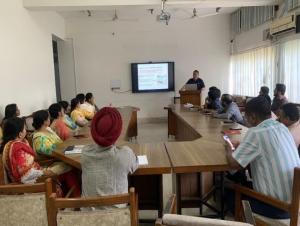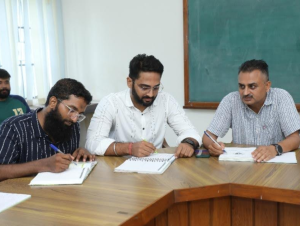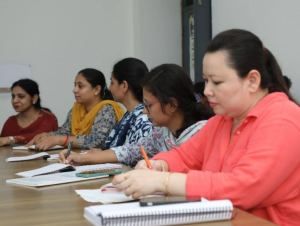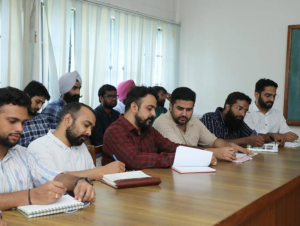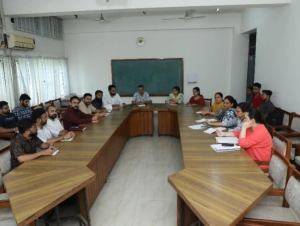1. Departmental Library
It is located within the department. It offers convenient access for students and staff. It is specifically designed to meet the academic and research needs of the students, faculty, and researchers within the department. The primary purpose of the library is to provide easy and immediate access to subject-specific literature, including textbooks, reference materials, research journals, project reports, dissertations, and other academic resources relevant to the department’s discipline. This helps in promoting focused learning, research, and academic excellence. The departmental library plays a vital role in enriching the academic experience by providing targeted resources in a convenient setting. It supports the department’s teaching, learning, and research goals and encourages a culture of self-study and scholarly engagement. The Incharge of the library in the department is Mr. Harpal Singh Thandi.
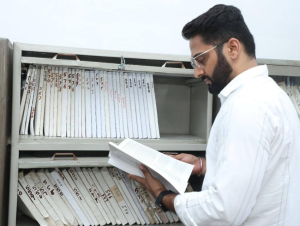
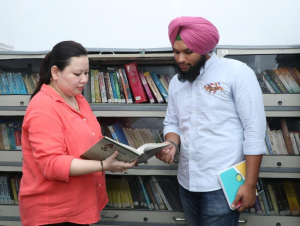
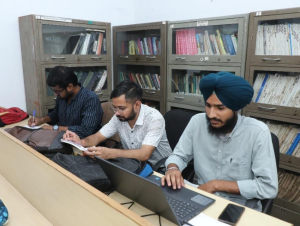
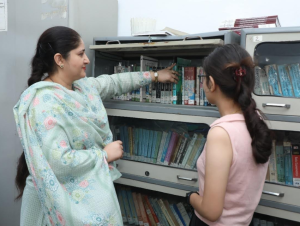
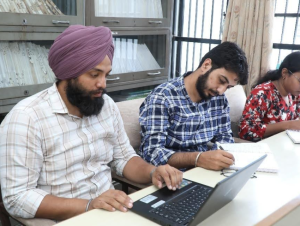
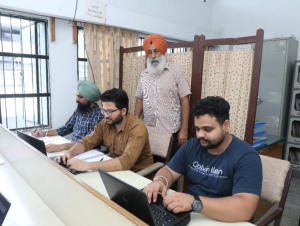
2. Smart Classroom
A smart classroom is a modern learning space equipped with advanced technology to enhance teaching and learning experiences. The smart classroom in the Department of Economics and Sociology includes digital tools such as an interactive smart board, which displays handwritten notes. These tools also allow teachers to present lessons using multimedia content like videos, animations, and presentations, making learning more engaging and interactive. Smart classrooms support virtual learning and online resources, helping students understand complex topics more easily. The room has traditional wooden desks with attached chairs, barred windows providing natural light. Overall, smart classroom creates an interactive and student-friendly environment that improves the quality of education.
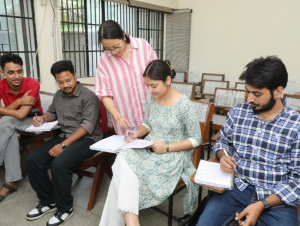
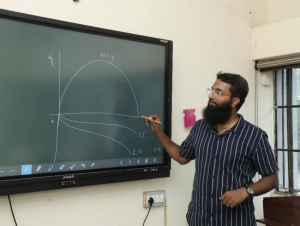
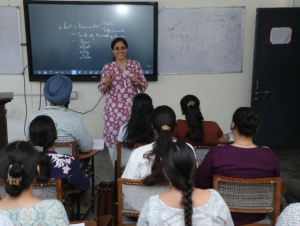
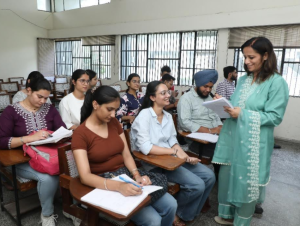
3. Data analytics lab
The Data Analytics Lab, housed in the Department of Economics and Sociology, serves as a vital resource for students to engage in data-driven research and analysis specific to the socio-economic dimensions of agriculture. Equipped with 12 desktops and STATA software, the lab enables students to analyze large-scale survey data, conduct econometric modeling, and evaluate agricultural policies and rural development programs. It supports coursework, dissertations, and faculty-led research projects that address issues such as farm income, poverty, risk management, and social dynamics in rural areas. By integrating statistical tools with subject-specific applications, the lab enhances students’ ability to interpret complex datasets, derive evidence-based insights, and contribute meaningfully to policy and academic discourse in agricultural and rural studies.
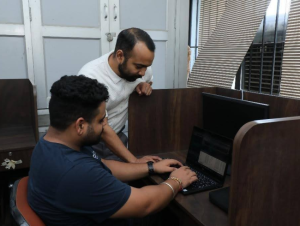
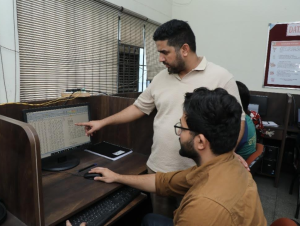
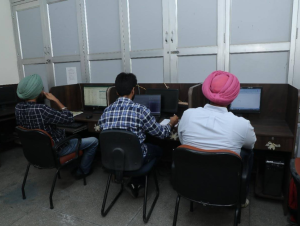
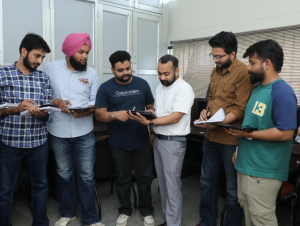
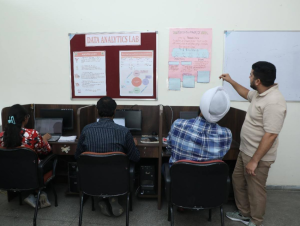
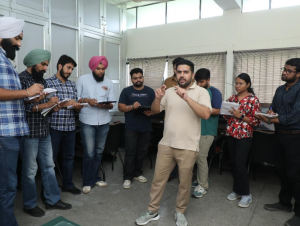
4. Access to statistical software
The Department of Economics and Sociology provides access to advanced statistical and econometric software such as STATA, SPSS, and EViews, supporting rigorous academic training and research. These tools are instrumental for students and researchers in analyzing agricultural, socio-economic, and policy-related data. STATA is widely used for econometric modeling, panel data analysis, and impact evaluation studies, while SPSS offers user-friendly features for survey analysis, descriptive statistics, and hypothesis testing. EViews is particularly useful for time-series analysis and forecasting in agricultural price trends and market behavior. The availability of these specialized software packages equips students with practical analytical skills, enabling them to conduct high-quality research and contribute to data-informed decision-making in agriculture and rural development.
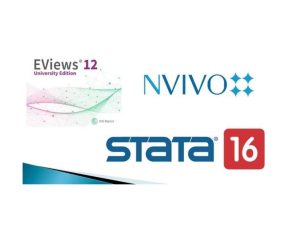
5.Cost of Cultivation Computer Lab
The Comprehensive Scheme for Studying the Cost of Cultivation of Principal Crops in India (CCPC) was launched in 1970–71 as a 100% centrally funded Central Sector Plan Scheme. The primary objective of the scheme is to generate reliable estimates of the cost of cultivation of major crops, which serve as a crucial input for the CACP while recommending the Minimum Support Prices (MSP). Since its inception, the scheme has been effectively implemented in Punjab by the Department of Economics and Sociology, Punjab Agricultural University (PAU), Ludhiana. To facilitate data collection and compilation, the scheme employs FARMAP 2.0, an online software developed by the National Informatics Centre (NIC). The software is designed to handle field data organized into twenty-two (22) Record Types. For this purpose, a dedicated computer laboratory has been established in the department. Field staff collect data from selected sample farmers and enter it directly into the software. The data is then verified, scrutinized, and validated at the departmental lab to ensure accuracy and eliminate errors before being submitted to the funding agency.
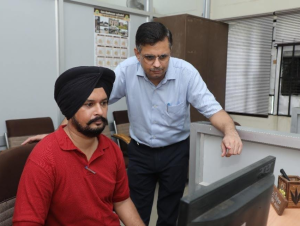
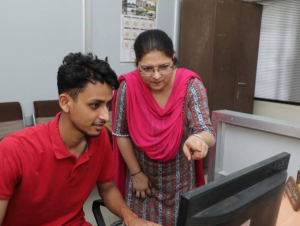
6. Committee Room
The Department is equipped with a dedicated Committee Room that serves as the central venue for academic and administrative engagements. It is regularly utilized for the conduct of seminars, invited lectures, workshops, and official meetings of the department. It provides a formal and conducive environment for deliberations among faculty, research scholars, students, and visiting experts. The Committee Room also serves as the venue for consultations with external collaborators and dignitaries, thereby fostering academic linkages and institutional partnerships. It plays a vital role in fostering intellectual exchange and collaborative initiatives within the department. With its conducive setting, the room adds greatly to the academic vibrancy and decision-making processes of the department.
